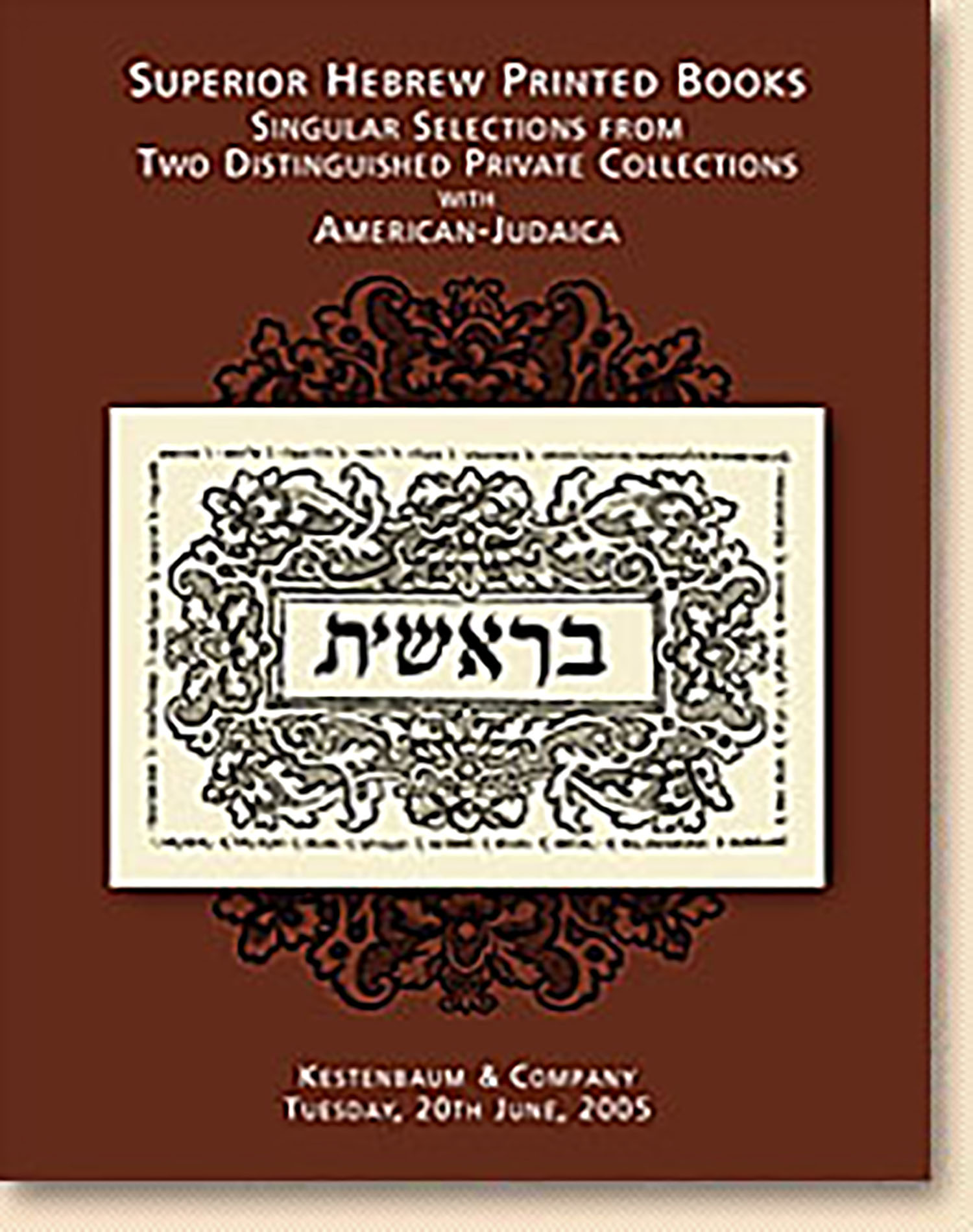Ben ha-Melech ve-ha-Nazir [“The Prince and the Hermit”]

AUCTION 29 |
Monday, June 20th,
2005 at 1:00
Superior Hebrew Printed Books: Singular Selections from Two Distingushed Private Collections with American-Judaica.
Lot 2
ABRAHAM BEN SAMUEL IBN CHASDAI.
Ben ha-Melech ve-ha-Nazir [“The Prince and the Hermit”]
Constantinople : n.p. 1518
Est: $15,000 - $20,000
PRICE REALIZED $17,000
Rare Early Didactic Tale.
Based on a popular early tale entitled “Barlaam and Josaphat” (in the Latin version), Ben ha-Melech ve-ha-Nazir is Indian in origin and was translated into many languages. The Hebrew version is based on the Arabic. The evolution of the tale from its Indian origins to the final Hebrew form given to it by Ibn Chasdai, through a now lost Arabic version, is extremely complicated and to this day the subject of much scholarly debate and speculation. “The Hebrew version is attractively written and the prose narrative is interspersed with versified aphorisms” (EJ). Meyer Waxman was of the opinion that Ibn Chasdai ‘s version is much more than a mere translation - practically an original creation. One of the parables is also used as an illustration by Bachya in his Duties of the Heart. But again, all this is mere speculation until such time as the Arabic original surfaces.
Because of the many ethical lessons and morals included in this work, many of the later Ba’alei Mussar were wont to cite from Ben ha-Melech ve-ha-Nazir. For one, the late Mashgi’ach or spiritual supervisor of the Mirrer Yeshiva in Brooklyn, R. Tzvi Feldman was extremely fond of the work.
Ibn Chasdai, who lived in the early thirteenth century in Barcelona, translated several important scholarly works from Arabic to Hebrew, including Maimonides’ Sepher ha-Mitzvoth (Book of Precepts) and Igereth Teiman (Epistle to Yemen). At the time of the Maimonidean Controversy he was a staunch defender of Maimonides and of R. David Kimchi against their zealous opponents.
See M. Waxman, A History of Jewish Literature, Vol. II (1933), pp. 590-596; EJ, Vol. IV, cols. 518-519; Vol. VIII, col. 1179
